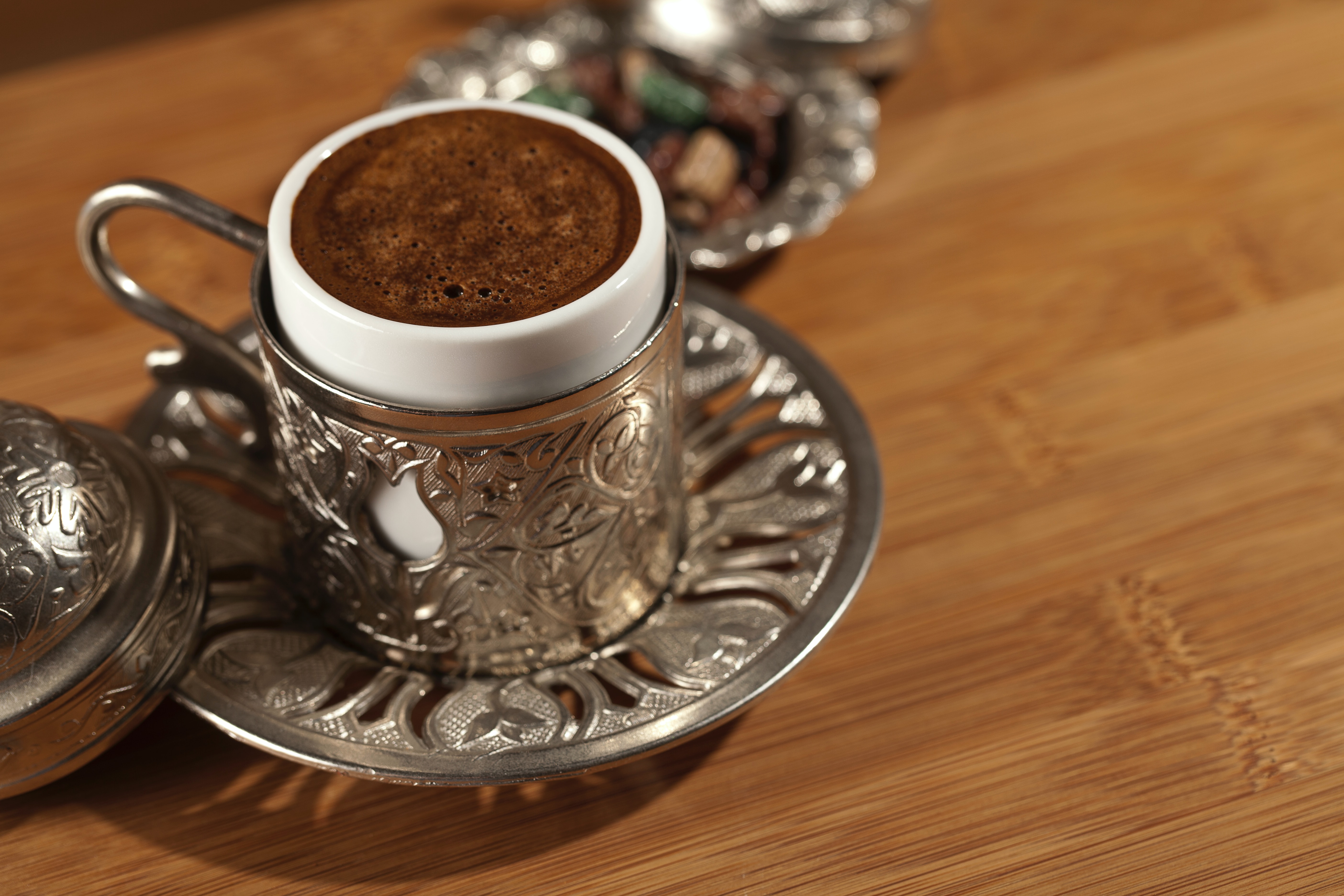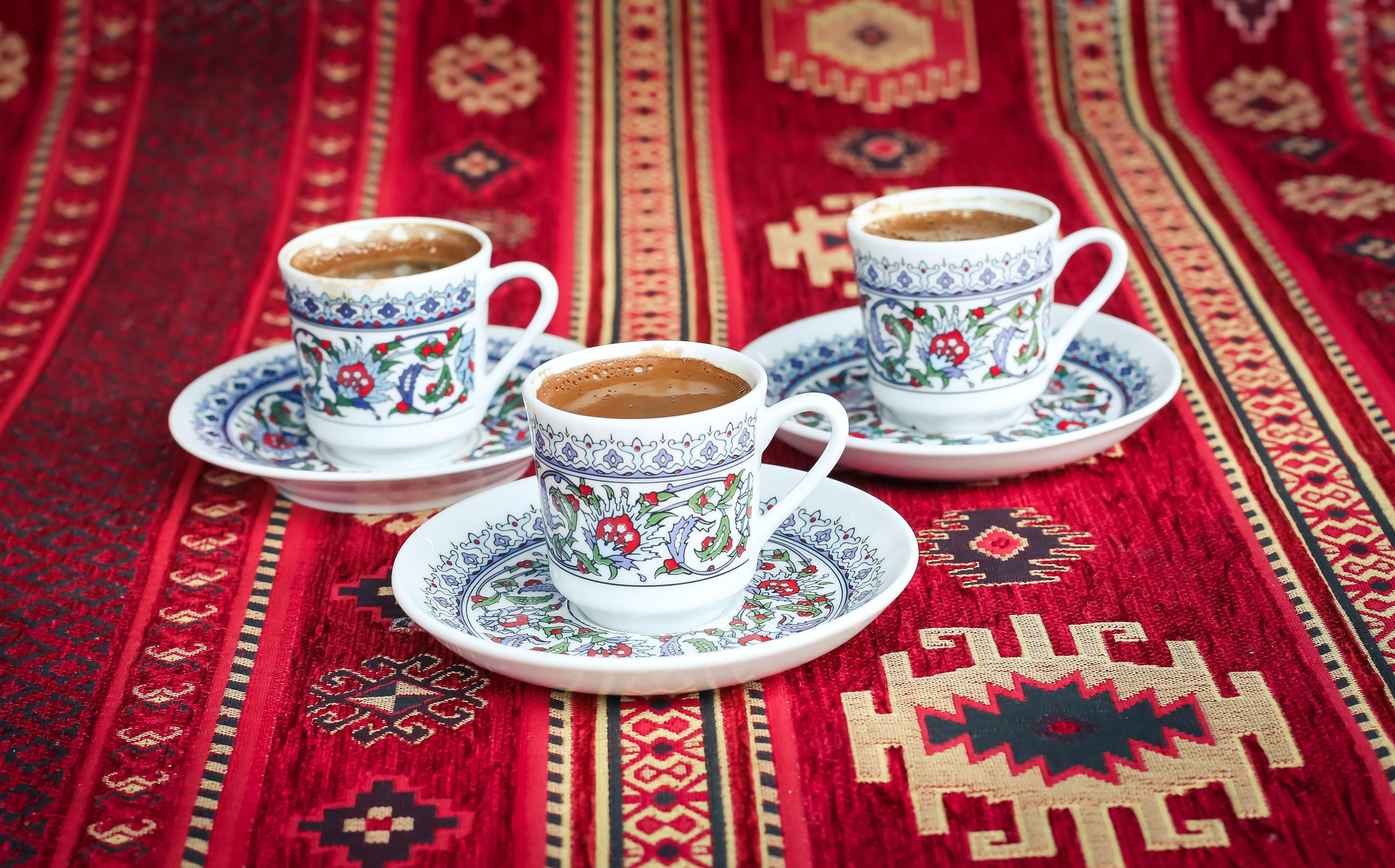Turkish Coffee: A Journey Through Time and Culture
November 21, 2024


Have you sampled Turkish coffee yet? If not, we invite you to join us on this flavorful journey.
The Origins of Turkish Coffee
Turkish coffee is more than just a drink; it's a rich tapestry woven with history, culture, and tradition. It is a unique beverage that has become an emblem of Turkish hospitality and a cornerstone of its social life. Join us as we embark on a journey to explore the origins, brewing process, and cultural significance of Turkish coffee.
Turkish coffee traces its roots back to 1555 when Syrian traders introduced it to Istanbul. By the mid-1700s, it had become an essential part of Ottoman Court ceremonies, with the Sultan being served ceremonious coffee by his own personal coffee makers. The Turkish Governor of Yemen, Özdemir Pasha, played a crucial role in popularizing this aromatic beverage. As the enjoyment of Turkish coffee came into vogue, merchants began trading coffee beans across borders, further spreading its fame and allure.
Turkish coffeehouses appeared around five centuries ago, beginning in Tahtakale. This small neighborhood, located south of Eminönü Square, is one of Istanbul's oldest districts and a great place to get an authentic local experience. Trade and commerce are very active in Tahtakale. This has been the case since Byzantine times, and it remains an important shopping district today.
Men would gather at these coffee houses for social occasions, with women typically enjoying the drink at home. Turkish coffeehouses were also important places for storytelling and folklore during the Ottoman Empire, preserving the country's oral history.

Types of Turkish Coffee
Every cup of Turkish coffee is made in a 'cezve' using the same, time-honored technique. The most common Turkish coffee types are:
Menengiç Coffee
Menengiç coffee is made from the beans of the Pistacia terebinthus tree, not actual coffee beans. For this reason, this beverage has a much fruitier flavor and has no caffeine.
Dibek Coffee
Dibek coffee, also known as "stone ground" coffee because it is ground in a stone pestle and mortar, is a lighter version of Turkish coffee in terms of flavor and coloring. It's a better choice for those who want a less potent cup because it's also said to be thicker and have a creamier taste.
Mirra
The Arabic word mirra, which means "bitter," is an apt description of its potent flavor. Cardamom and other spices are frequently added to make it more flavorful. The beans are twice-roasted and not as finely ground, giving it a much more bitter flavor.
How is Turkish Coffee Prepared?
Turkish coffee, known for its rich tradition and distinctive preparation methods, can be crafted in a variety of distinctive ways, each contributing to its exceptional flavor.
The secret to a potent, unfiltered cup of Turkish coffee is in the brewing process. It makes use of high-quality Arabic-type coffee beans from Brazil and Central America that have been moderately roasted and ground finely. After that, the coffee is brewed in a small, long-handled pot known as a 'cezve.'
One of the methods involves brewing coffee on sand, in which a special flat-bottomed pot sits atop a bed of heated sand, providing even and controlled heat for brewing. Another traditional method is to brew Turkish coffee on coals, which involves placing the cezve (coffee pot) directly on hot coals, ensuring a slow and consistent heat source.
Furthermore, some regions practice brewing Turkish coffee on ashes, which is similar to the coal method but with a layer of ashes beneath the pot acting as a heat conductor. These various techniques highlight Turkish coffee's cultural richness and adaptability, allowing enthusiasts to savor its exquisite taste in a variety of authentic ways.

Turkish Coffee and Culture
Turkish coffee holds a special place in Turkish culture. Ottoman society became characterized by it by the mid-17th century. Even today, it is more than just a drink; it is a complete cultural experience. Turkish coffee is always served, whether it's at a social event, business meeting, or traditional Turkish wedding, signifying warmth and friendship.
Did you know that Turkish coffee is also associated with fortune telling? After finishing their coffee, some Turks turn their cups upside down, allowing the remaining grounds to form patterns that are then interpreted to reveal the drinker's future.
Why Turkish Coffee is a Must-Try for Tourists
Turkish coffee's charm and allure are enhanced by the enchanting way it is served... in small cups, piping hot, with a refreshing glass of water to cleanse the palate and a delectable piece of Turkish delight that gives a delightful contrast of flavors. This attractive presentation elevates the overall experience and turns drinking Turkish coffee into a truly memorable event.
Turkish coffee stands as a testament to a slower, more mindful way of life in a world dominated by fast coffee culture. Its deep historical roots, intricate brewing process, and central role in Turkish culture make it a must-try for coffee and cultural enthusiasts alike. So let us toast tradition, culture, and the timeless pleasure of a perfectly brewed cup of Turkish coffee.




